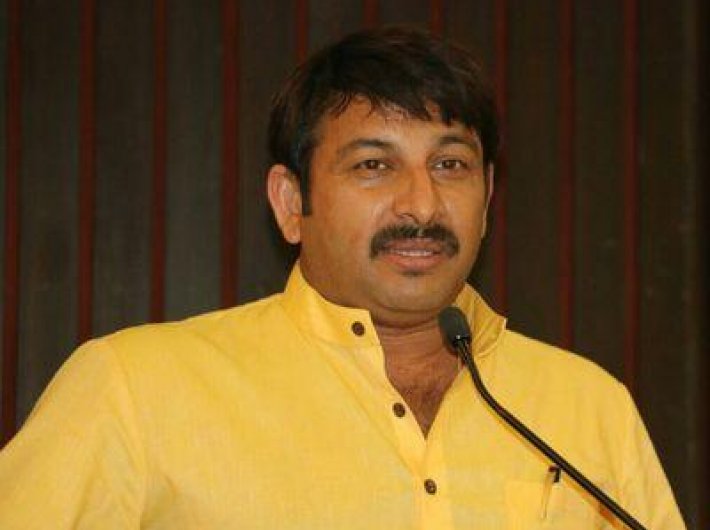Ahead of the 2017 Delhi municipal elections, the Bharatiya Janata Party played the most crucial regional card by appointing actor-turned-politician Manoj Tiwari as the state president. The BJP’s move to appoint Tiwari comes as a bid to win back the Purvanchal voters who mark a sizeable number of the capital’s population.
Almost 40 lakh or 25 percent vote share is comprised of the Purvanchal population in Delhi that includes people from Bihar, Jharkhand and eastern Uttar Pradesh. It is the sole reason that BJP bigwigs picked a Purvanchal candidate ending the Punjabi-Baniya lobby in Delhi. Arvind Kejriwal’s Aam Aadmi Party in the 2015 assembly elections had won over these migrant voters leading to a historic mandate – 67 out of 70 seats. The AAP’s all 13 Purvanchali candidates had registered victories by massive margins. To name a few, Sanjeev Jha from Burari, Rituraj Govind from Kirari, and Bandana Kumari from Shalimar Bagh.
Almost 80 municipal wards or 20 assembly constituencies in Delhi are dominated by the Purvanchalis comprising 17 to 47 percent of vote share. In the 2013 assembly polls, BJP had won 14 of these 20 seats while AAP bagged six seats. The Tiwari effect was visible even then as of the 19 constituencies where he campaigned, the BJP won 14 seats in the 2013 polls.
Purvanchalis form 25-30 percent share in Delhi administration and 30-35 percent in private sector. While the social sector in Delhi has 50-55 percent Purvanchalis, their share in the education sector is 35-40 percent. Wage earners and people from unorganised sectors comprise nearly 60-65 percent of Purvanchali voters in Delhi. The Purvanchali-dominated seats in Delhi include Burari, Seemapuri, Gokalpuri, Karawal Nagar, Kirari, Badli, Nangloi, Rithala, Matiala, Vikaspuri, Dwarka, Uttam Nagar, Sangam Vihar, Deoli, Badarpur, Tughlakabad, Patparganj, Laxmi Nagar, Wazirpur and Rajinder Nagar.
BJP’s image in Delhi had worn away during Satish Upadhyay’s stint as the party president. Not only did BJP suffered a massive poll debacle in 2015 under his leadership, Upadhyay also failed to end the infighting within the party divided into factions led by Vijay Goel and Vijender Gupta and did not command respect among the warring factions. Upadhyay, being a leader of the south Delhi municipal corporation, also faces anti-incumbency. At present, the party faces a major challenge to salvage its image from the crushing defeat in the 2015 Delhi assembly polls, to strategise for the 2017 municipal corporation polls and get ready for the 2019 Lok Sabha elections.
Tiwari is known to be close to BJP’s national president Amit Shah, therefore his appointment would be crucial for the BJP in many ways. Tiwari is a popular face and thus can easily influence a large number of voters. His appointment could end the infighting within the BJP’s clear factional units. The party would also be able to silence critics like Poonam Azad, another Purvanchali, who left BJP to join AAP recently. Poonam, wife of BJP MP Kirti Azad, quit BJP after the party suspended her husband for his allegations against finance minister Arun Jaitley.
Currently the Northeast Delhi MP and originally from Bihar, Tiwari would have to win over the migrant population and ease the anti-incumbency factor BJP is suffering for two consecutive terms. Not only will he have to counter the corruption allegations and address salary issues of municipal corporation employees, Tiwari will also have to bolster the vote equation and clinch the votes from AAP which made its debut in the municipal bypolls this year by winning 5 out of 13 seats. “In the municipal bypolls, BJP lost some vote bank to AAP. Therefore it will have to win over the Purvanchali voters and clinch these votes to win the 2017 municipal elections. The Purvanchali vote bank amounts to 40 percent of total votes of capital and that is a huge number,” said a party insider.

